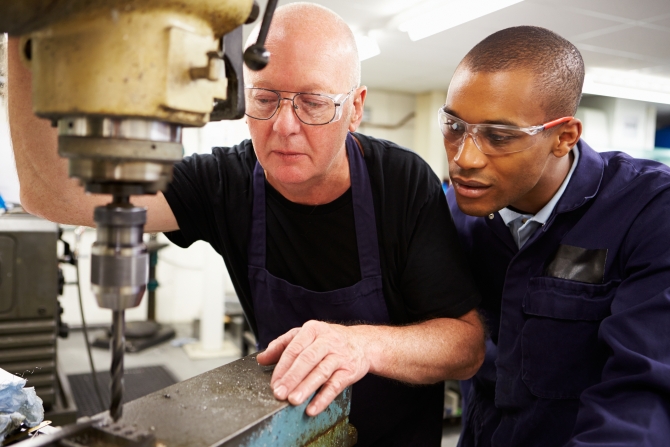During August and September, the news coming from the manufacturing sector was less than optimistic. Due to a combination of problems in the Eurozone, a drop in domestic demand and the strong pound, output had significantly lessened since the boom period at the beginning of the year. Fortunately, though, October saw a positive return to form for the industry, with firms posting their best results in three months.

According to the Markit UK manufacturing Purchasing Managers’ Index (PMI), growth rose to a reading of 53.2 during the past month. This was significantly better than the 51.5 reading from September, at which point manufacturing grew at its slowest pace in 17 months.
Although export orders remained weak, having fallen at their fastest pace since January 2013, strong domestic demand managed to offset this. This proved somewhat surprising for economists, who predicted a further fall during the month to a growth reading of only 51.4.
Markit senior economist Rob Dobson claimed that the positive turnaround was a demonstration of the “resilience of the domestic market, as overseas demand was impacted by the ongoing economic weakness of the Eurozone and the euro-sterling exchange rate.”
He continued; “The latest report is a positive marker for the start of the final quarter, as the growth rate of the UK manufacturing sector staged a mini-recovery in October.
“Although the pace of expansion remains below that seen at the start of the year, suggesting the sector will remain only a modest contributor to economic growth, it is positive to see the sector break its recent sequence of slower growth.”
Another sign that the manufacturing sector would continue to improve as the year draws to a close was the sharp rise in jobs creation. According to the report, small and mid-sized firms were the most significant contributors to the employment rise, although larger firms also created jobs at a steady rate when compared to the year as a whole.
Mr Dobson added; “Continued growth of employment, especially at SMEs, suggests that the recovery in the labour market is holding sway.”
Employment growth has remained relatively strong within the manufacturing sector since the economic recovery began, indicating that the majority of firms are confident about their overall growth prospects in the short term.
However, another explanation for this enthusiasm for hiring could be the fact that the pool of skilled workers within the UK is continuing to shrink – causing many firms, especially smaller ones, to take on as many skilled engineers as possible in case of a talent shortage in the near future.
With apprenticeship programmes becoming increasingly desirable due to a series of funding projects initiated by the government, hopefully firms will continue to create jobs at the current pace for some time yet. However, without a strong recovery within the Eurozone, it seems that overall growth is set to be limited to a degree for some time yet.
Previous Post
Property Developer and Playboy in Domain Name Dispute